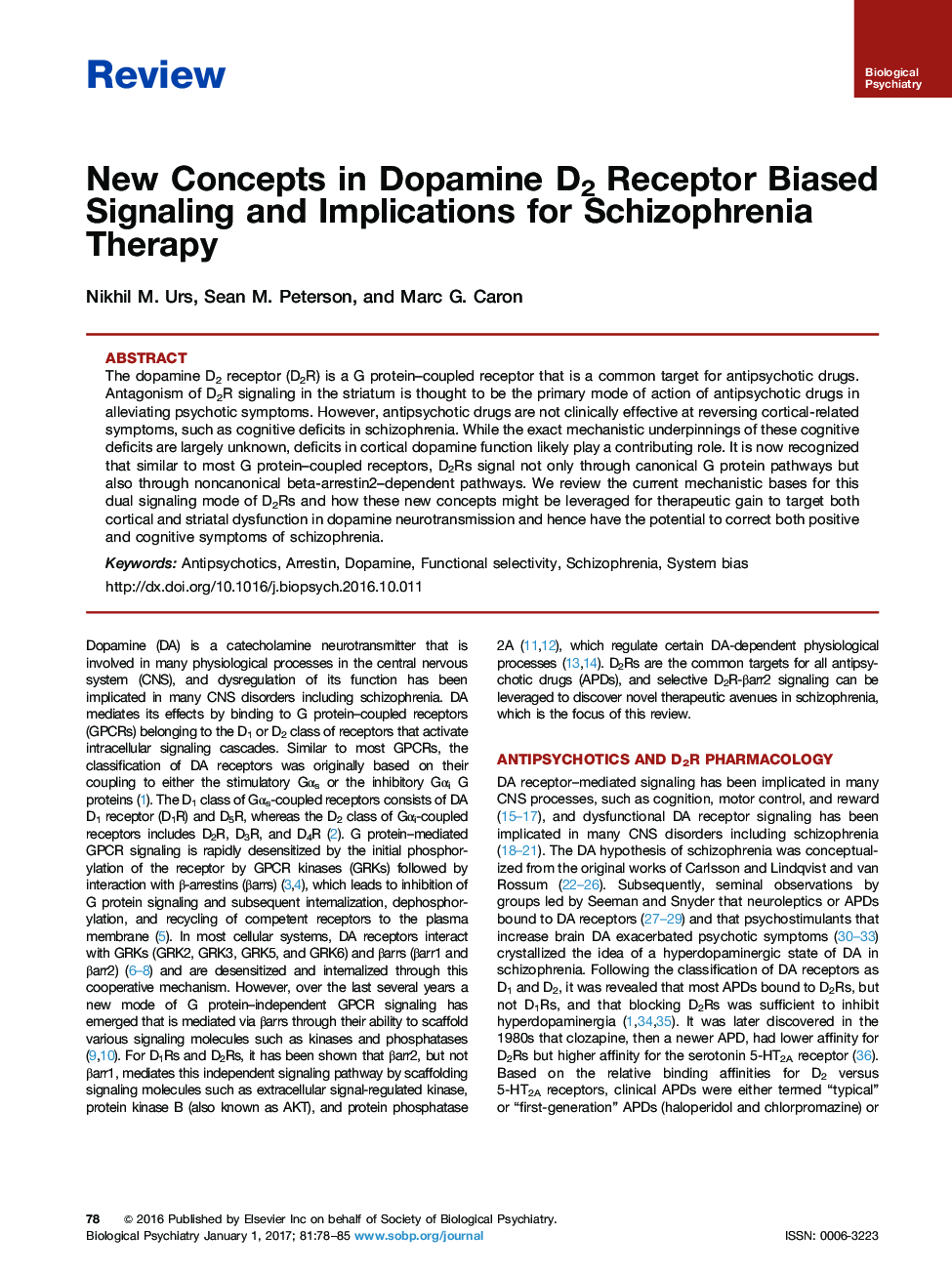| Article ID | Journal | Published Year | Pages | File Type |
|---|---|---|---|---|
| 5720797 | Biological Psychiatry | 2017 | 8 Pages |
The dopamine D2 receptor (D2R) is a G protein-coupled receptor that is a common target for antipsychotic drugs. Antagonism of D2R signaling in the striatum is thought to be the primary mode of action of antipsychotic drugs in alleviating psychotic symptoms. However, antipsychotic drugs are not clinically effective at reversing cortical-related symptoms, such as cognitive deficits in schizophrenia. While the exact mechanistic underpinnings of these cognitive deficits are largely unknown, deficits in cortical dopamine function likely play a contributing role. It is now recognized that similar to most G protein-coupled receptors, D2Rs signal not only through canonical G protein pathways but also through noncanonical beta-arrestin2-dependent pathways. We review the current mechanistic bases for this dual signaling mode of D2Rs and how these new concepts might be leveraged for therapeutic gain to target both cortical and striatal dysfunction in dopamine neurotransmission and hence have the potential to correct both positive and cognitive symptoms of schizophrenia.
